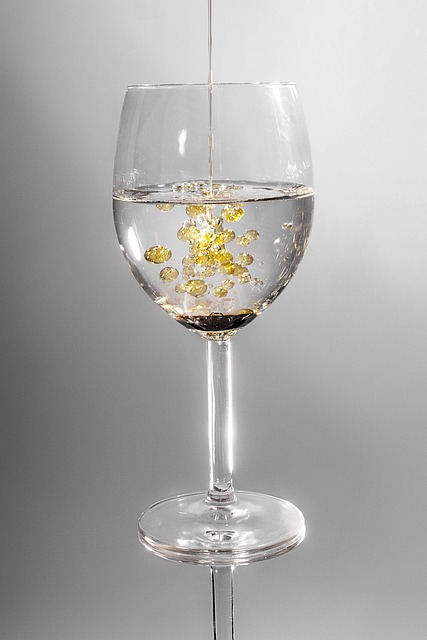Oil and water don’t mix, they are what is called immiscible. It was a proverb that Grandma Lukie always used in relation to making herbal preparations; Grandma Lukie was very fond of proverbs. Let’s get technical for just a moment.
Water molecules are ‘polar’; they have a negative charge at one end and a positive one at the other. So like a magnet the positive end of one will be attracted to the negative end of another, and they will stick together. Oil molecules are non-polar, their charge is evenly balanced throughout. This means that oil molecules are more attracted to other oil molecules, and water molecules to other water molecules; so the two don’t mix with each other. Water is also denser than oil and will always sink, whilst the oil will float on the top.
What has this got to do with Herbal Oils?
There was a reason that she used it in this sense. A plant can be up to 95% water. This has implications for the stability of a herbal oil and its ‘life expectancy’. A Herbal Oil made with ‘fresh’ herb material will not keep for anywhere near as long as one made with dried.
There are good scientific reasons for this but I doubt that Grandma Lukie knew the science behind it. I don’t think that it mattered whether or not she knew the science, it mattered that she knew. Grandma Lukie knew through observation, experience and knowledge handed down to her from previous generations. She also knew because of the close relationship that she had with the plants.
She knew that herbal preparations made with fresh herbs didn’t keep as well because Oil & Water don’t mix.
Grandma Lukie didn’t make ‘herbal oils’ in the same sense that I make them today. I make enough of the more popular oils to ensure that I always have some to hand. Or so that I can make a batch of a particular salve/balm in one go. For this reason I use mainly dried herbs for the longer shelf life. Grandma Lukie tended to make things as they were required. And there are steps that can be taken if you are using fresh herbs to minimise spoilage.
The Oil Matters
Any oil that contains unsaturated or polyunsaturated fats; that is fats that allow the oil to be liquid at room temperature, can go rancid. These days the majority of the oil that we tend to use falls into this category. Oils go rancid for a number of different reasons and some oils will spoil quicker than others. They include exposure to light, heat, water, certain microbes and air (oxidation). Water provides a ‘double whammy’, because not only will it cause oil to go rancid it also supports the growth of many types of microorganisms. Some of these microorganisms are advantageous. Such as the chemical activities of certain strains of yeasts that provide us with beer and bread. Others will kill you.
Rancid oil needs to be avoided at all costs; not only can they develop potentially toxic compounds they are extremely irritating to the skin instead of soothing. The exact opposite of what we want from a herbal oil.
Salves & Balms vs. Creams
It is simple enough to make salves and balms from a base herbal oil without the need for water to come into the equation at all. Making sure that they have a good antioxidant should give them a relatively decent shelf life.
To make creams, you need water. This is where other ingredients become necessary. In the early days of commercial cosmetics nearly all creams sold in stores became rancid. There were no consumer protection laws back then. To make a cream you need to emulsify the oil and water (make it mix), this is why creams are also referred to as emulsions.
These days people confuse beeswax with emulsifying wax. Beeswax is not an emulsfier on its own; it doesn’t have the necessary chemical structure.
Grandma Lukie’s Solutions
To avoid the problem with rancidity in oils Grandma Lukie either used mineral oil, which doesn’t go rancid (although it will eventually polymerise) and can last for up to three years, but more often than not she used Tallow (beef fat). Mineral oils are still a major ingredient in skin cosmetics today.
Using tallow as a skin moisturizer is a practice that is thousands of years old and it is amazing for your skin. It is structurally similar to sebum, which is the lubricating oil secreted by our skin. It is highly bioavailable, which means it’s easy for our skin to absorb and use the nutrients, and it keeps for many months without refrigeration.
Water would be boiled to make sure that it was purified. Borax was the go-to solution for emulsifying.
Borax can act as a preservative, an emulsifier, a water softener, cleanser, particle suspender or even a buffering agent; although it is only used in miniscule amounts in creams (0.003% or even less) some people are allergic to it. Having said that for every substance on earth there will be somebody that is allergic to it.
Product Safety
If we want to make products for other people there is a whole raft of consumer protection laws that we have to get our heads around. Grandma Lukie may not have been plagued by these but she did have a reputation to uphold. If she made bad products for people they wouldn’t come back.
